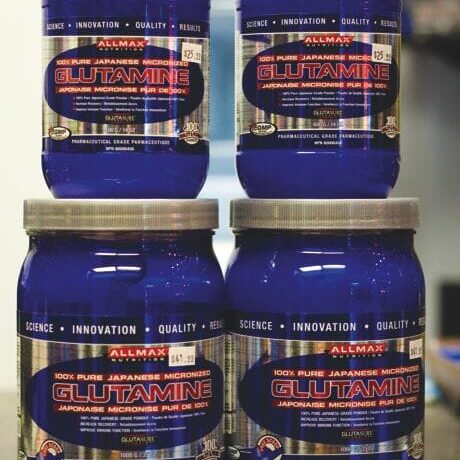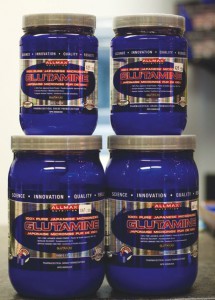
Tiger Toning
I’m going to take this opportunity to touch on bodybuilding supplements
“Recently some friends of mine have been using glutamine after high-intensity workouts. How does it benefit weightlifters and does it have any known side effects?” –GlutaWha?
Along with discussing the well-known supplement glutamine, I’m going to take this opportunity to touch on bodybuilding supplements in general and some of the highlights curious folks like yourself might be interested in. After all, many of us question what’s so special about those massive jars in the gym bags of the most committed fitness-goers. But, before I begin, I must address a huge disclaimer: I know almost nothing about supplements. In fact, that’s an exaggeration—I know nothing about supplements.
However, do not fret. This is what we students do best: research. Digging into the subject, this is what I found.
Firstly, glutamine is not foreign to our bodies. It is the most abundant amino acid (building block) created by our bodies and, therefore, isn’t ‘required’ from our food; I put air quotations around ‘required’ because there are times when your body may need a dose of glutamine.
For example, post-surgery or illness may allow the body to benefit from an extra helping of glutamine as the need for it significantly increases when you need to recover.
What about exercise, you ask? Research shows there may be a benefit from glutamine supplementation in situations where the body has undergone great stress from demanding exercise. This means that if you are living a normal, only moderately active lifestyle, you probably aren’t going to see any benefit from extra glutamine.
However, if you are an athlete or someone who engages in regular bouts of intense physical activity like our weightlifting friends mentioned in the question, glutamine could be assisting with muscle recovery, prevention of muscle tissue breakdown and it may even aid in immune function. To put it simply, you are giving your body what it would otherwise breakdown muscle to get. In the process, you preserve the body’s normal functions and help it recover more effectively.
Now, be careful. Research on glutamine is fairly scant and more work is needed to determine whether or not it is a worthwhile expenditure for those seeking to improve their progress and overall fitness.
The good news is that where glutamine is a naturally occurring substance in the body, you are not introducing something foreign to the body that may be harmful. That being said, like anything, large amounts could be toxic. Evidence suggests that you need to take a whole lot of glutamine before reaching these levels, but it is still a good idea to be cautious.
Essentially, if you are an intense exerciser with specific muscular strength goals, you may benefit from taking glutamine in moderate doses. If you are only a casual exerciser with little high-intensity work in your regime, this may not be a wise investment.
Supplements, in general, can make people somewhat uncomfortable as there is not an abundance of research on many of the products some exercisers take. Retailers can certainly discuss the benefits as they are currently understood, but it may be worthwhile to do your own background research before you pay the big bucks for buckets of expensive supplements. A little digging on your part could alert you to any red flags or possible concerns around specific products.
I should also clarify that supplements are very different than the performance enhancing substances that are often banned in professional sports. Those drugs usually involve the introduction of hormones into the body that can greatly alter function and compromise your health. If a friend is offering you something to help your workout, get the facts first before consuming it. Plus, nobody likes a juicer.







